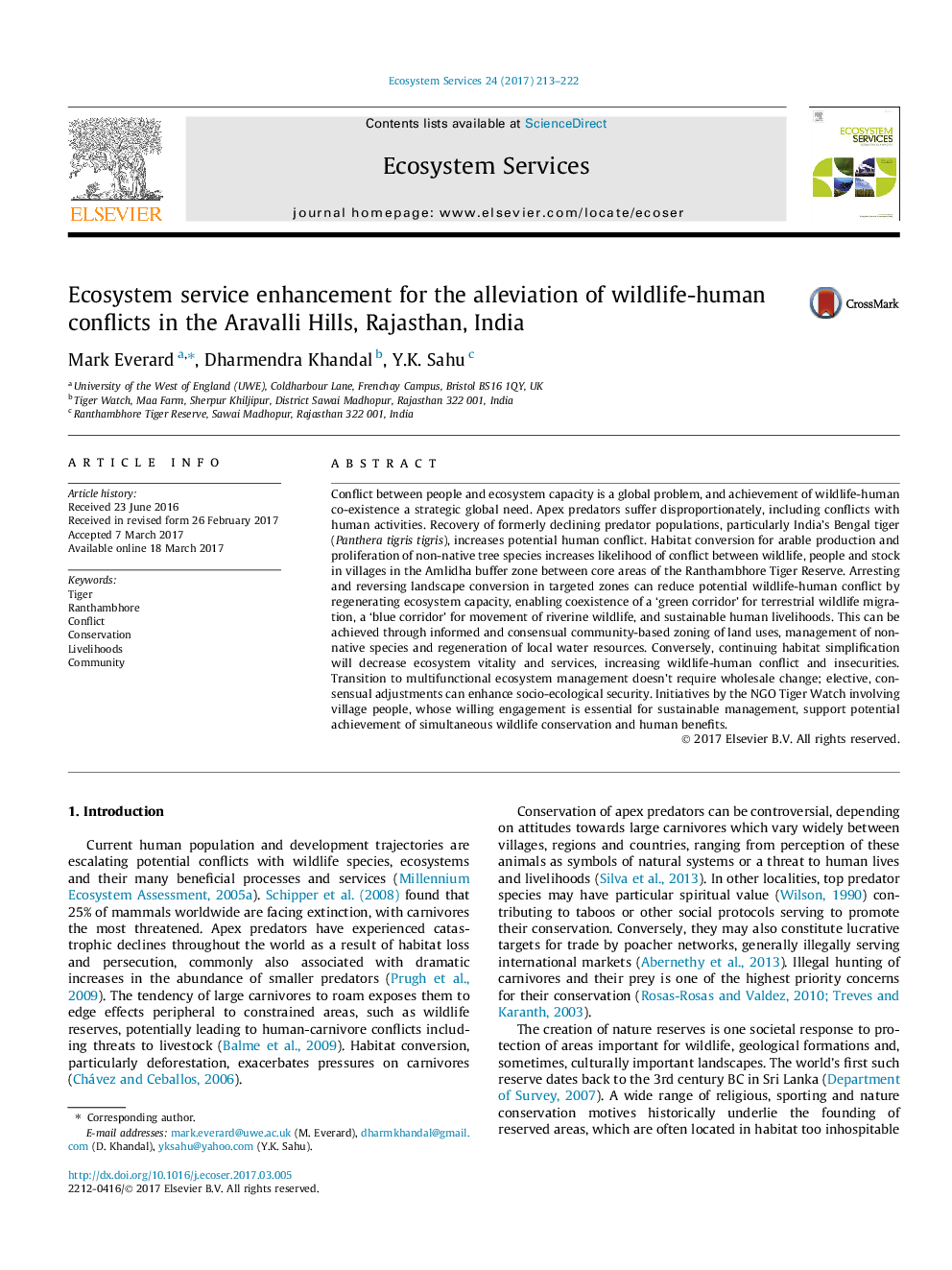| کد مقاله | کد نشریه | سال انتشار | مقاله انگلیسی | نسخه تمام متن |
|---|---|---|---|---|
| 6463636 | 1422536 | 2017 | 10 صفحه PDF | دانلود رایگان |
- Human-wildlife co-existence requires ecosystem service diversity and capacity.
- Increasing tiger and human numbers in the Ranthambhore buffer zone pose challenges.
- Transition to multifunctional ecosystem management may not require wholesale change.
- Co-existence of wildlife with human livelihoods may be enhanced by land use zoning.
- Community-based decisions and management can generate reduce potential for conflict.
Conflict between people and ecosystem capacity is a global problem, and achievement of wildlife-human co-existence a strategic global need. Apex predators suffer disproportionately, including conflicts with human activities. Recovery of formerly declining predator populations, particularly India's Bengal tiger (Panthera tigris tigris), increases potential human conflict. Habitat conversion for arable production and proliferation of non-native tree species increases likelihood of conflict between wildlife, people and stock in villages in the Amlidha buffer zone between core areas of the Ranthambhore Tiger Reserve. Arresting and reversing landscape conversion in targeted zones can reduce potential wildlife-human conflict by regenerating ecosystem capacity, enabling coexistence of a 'green corridor' for terrestrial wildlife migration, a 'blue corridor' for movement of riverine wildlife, and sustainable human livelihoods. This can be achieved through informed and consensual community-based zoning of land uses, management of non-native species and regeneration of local water resources. Conversely, continuing habitat simplification will decrease ecosystem vitality and services, increasing wildlife-human conflict and insecurities. Transition to multifunctional ecosystem management doesn't require wholesale change; elective, consensual adjustments can enhance socio-ecological security. Initiatives by the NGO Tiger Watch involving village people, whose willing engagement is essential for sustainable management, support potential achievement of simultaneous wildlife conservation and human benefits.
Journal: Ecosystem Services - Volume 24, April 2017, Pages 213-222
